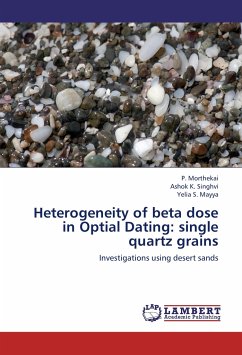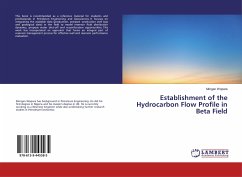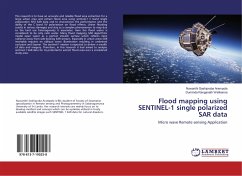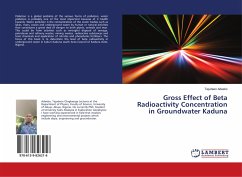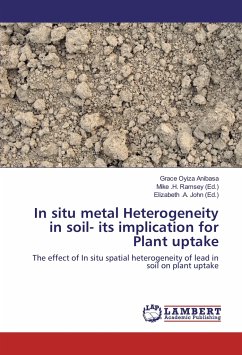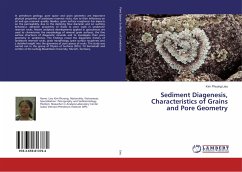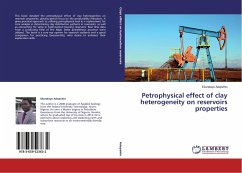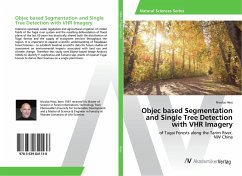Luminescence Dating using single grains was a major technological advance as it provided for possibilities of dealing with heterogeneously bleached grain, with the prospect of isolating grain that were optically most bleached at the time of deposition. However at single grain level, complication due to heterogeneity in natural beta dose arises due to the fact that the entire potassium of a sediment matrix is contributed by few grains of K-feldspars with up to 14% potassium. And depending on the distance of a quartz grain from a feldspar grain the beta dose changes which leads to a range of beta doses. In this thesis, we computed this distribution of beta doses in natural samples using configuration averaging and Laplace Transform techniques. The spread in the dose distribution was explained solely with the number and positional fluctuations of feldspar grains in the sediment matrix. We then developed a new protocol for age computation using single grain that includes in it the effects of heterogeneous distribution of beta doses. Go through it and you will get new ideas to improve on it
Bitte wählen Sie Ihr Anliegen aus.
Rechnungen
Retourenschein anfordern
Bestellstatus
Storno

